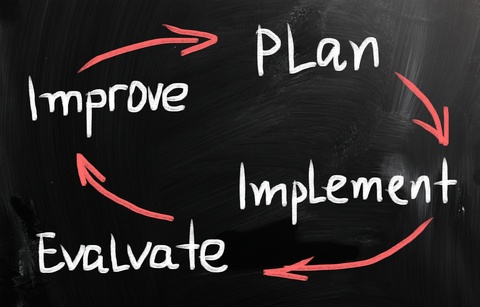Share article
Too often in this industry, producers are armed with nothing more than a desk, a phone, and some words of encouragement. They’re expected to just go out and “make it happen”. At a time when the industry, client expectations, and technology are changing at a dizzying pace, it’s no surprise producers and their sales managers/agency owners are frustrated.
However, we need to look at the sales managers and agency owners for the answers, not the producers. It is the leadership’s responsibility to arm the producers with the effective tools they need to be successful. And for a producer, there is no more important tool than a complete sales system.
What is involved in a complete sales system? To be fair, there is no one right way to build one, but it does have to be about more than a spreadsheet. I would offer it must include: Process, Education, Purpose, and Coaching. Let’s look at each in a little more detail.
Process
To do anything consistently, there must be a process to follow. We have processes for nearly everything service-related in our agencies. We must also have a process for the one thing that makes everything else possible: the way we acquire new clients.
I’m not talking about a rigid, cookie-cutter approach, but logical steps a producer can follow to help a prospect make better buying decisions. Two key pieces here. First, when selling, a producer is competing against the current broker, not the carrier. Spreadsheets are about choosing the carrier; your process has to build a case for your advice and services. Secondly, a sales process is more for the benefit of the buyer than it is for the producer.
Challenge – Define the progressive steps for your producers (or yourself if you have no sales manager) to follow when meeting with a new prospect. For example: Introduction, Fact Finding, and Proposal. Define what each of those steps includes for both the producer and the role the prospect plays in this process.
Education
We all know that asking the right questions is a much more powerful sales strategy than telling. And, we also know that the more strategic the questions, the more meaningful the conversation will be that follows.
Simply giving producers a list of questions is beyond dangerous. They will be uncomfortable and the prospect will feel attacked. Instead, help them build the knowledge to understand the implications of the questions and they will feel confident and the prospect will feel comforted.
Challenge – List the learning opportunities you have provided for your sales team in the last 3 months. Define what learning opportunities are needed to help them move forward in the next 3 months with the newly defined process. (Hint – The opportunities must go beyond product features and benefits. Otherwise, you are not preparing them to compete on anything other than price.)
Purpose
As human beings we all have various levels of needs. To borrow from Maslow’s hierarchy of needs, they range from basic needs of survival to self-actualization.
Guess what? Producers are people too! If your only expectation of your producers is to sell more policies, you are only helping them with some of the most basic of needs. I think this is why so many producers plateau. They rationalize that they have sold enough to provide for a comfortable income and they stop.
However, if you help them find a greater purpose (maybe “to help clients be more successful,” “help build employers of choice,” or “create more rewarding employee experiences for their clients”) you will be helping them focus on a higher calling.
And, now guess what? The higher the calling, the longer they will be committed to that calling. And, the longer they will continue to write new business.
Challenge – What is your Purpose as an agency? If it isn’t defined at the agency level, the chances are pretty slim that it will be defined at the producer level. Define the agency purpose, and then help producers define their own individual purpose. (Hint – “making money” is a result of the Purpose, not the Purpose itself.)
Coaching
Everyone needs coaching. However, all too often, we hear sales managers/agency owners excuse themselves from coaching because “they are professionals, they know how to do their job.” While that may very well be true, we all need coaches to remind us of the basics and push us to new levels (ask any professional athlete, performer, or business executive).
To clear a couple of myths, coaching is not micromanaging and coaching does not need to be overly time consuming.
Coaching is about ensuring the key performance metrics of the producers are being tracked in order to identify both where adjustments are needed and also to identify strengths to be exploited. Coaching is about bringing accountability, reinforcing/expanding skills, and bringing a level of self-awareness to the producer.
Once organized and with a rhythm established between coach and producer, 10-15 minutes a week is all it will take to increase performance and results.
Challenge – Select a coach for your producers (doesn’t have to come from the inside). Define what to measure for each producer, how often to meet with each producer, and what the measured improvements resulting from the effort will be.
Having a complete sales system takes hard work, but its hard work that must be done. If you don’t, you are building the rest of your business on a fragile foundation. You can have it for your own; you just have to ask yourself, “How badly do I really want it?”
Photo by Krasimira Nevenova
A version of this post originally appeared on Zywave.com

-png.png?width=300&height=200&name=Untitled%20design%20(10)-png.png)




